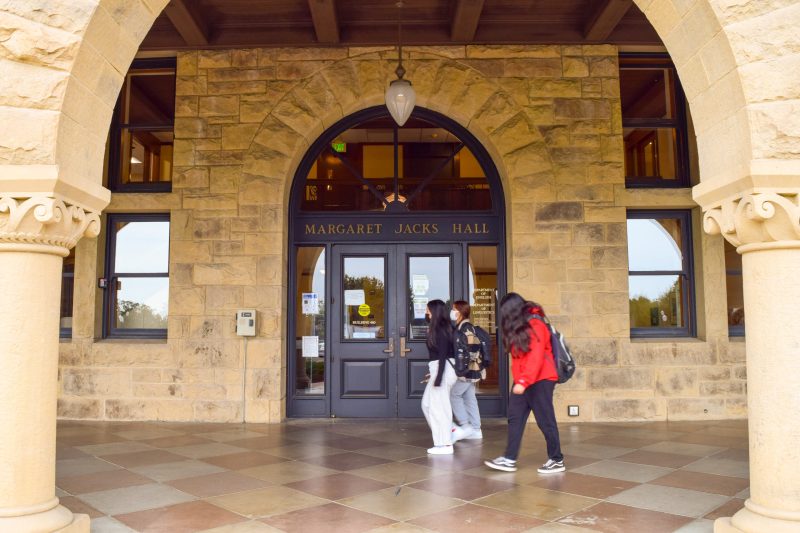A Master of Fine Arts (MFA) in creative writing is an often selective, often two-year degree program that gives writers time to hone their craft under the mentorship of established writers. The program is not offered at Stanford, but many faculty affiliated with the creative writing program pursued an MFA.
The Stanford Daily interviewed Tom Kealey, Sarah Frisch and Sara Michas-Martin from the English department on how their MFA degrees influenced their writing and teaching careers.
Kealey, author of “The Creative Writing MFA Handbook,” earned his MFA from the University of Massachusetts Amherst. Frisch holds an MFA in Fiction from Washington University in Saint Louis. Michas-Martin attended an MFA program at Naropa University before completing the degree in Poetry at the University of Arizona. All three are former Wallace Stegner Fellows.
Each lecturer emphasized the importance of MFAs in surrounding them with a community of writers.
“Teachers are important for sure, but a workshop is only as strong as your fellow writers in the class,” Kealey said.
“The people you really are going to learn from are your peers,” Michas-Martin said. “Sometimes the conversations that happen in the bar or at someone’s house or at the coffee shop are the ones that will stick with you.”
An MFA program also gives writers a chance for extensive reading, which can be beneficial for those without a strong literature background.
“I was able to start to understand the work I was reading in relation to the kind of work I wanted to create,” Frisch said, referencing the Ph.D. literature classes she took during her MFA.
Frisch also stressed the importance of reading for aspiring writers, with or without intent to pursue an MFA. She advised writers to read every day. “If I’m stuck somewhere in my writing, often the answer is in my reading life, not in my writing life,” Frisch said.
For students interested in pursuing an MFA, Kealey recommended that they take some time off after their undergraduate studies.
“I think this is true no matter what degree you pursue,” Kealey said.
Similarly, Frisch has always told people to take a few years before pursuing an MFA program.
“It makes such a difference to have been writing on your own — finding your voice and your material and then returning to the MFA program,” Frisch said.
Michas-Martin took a year to travel around the world after completing her Bachelor’s degree. “That’s when I decided I really wanted to write … I just knew I loved it,” she said. “So I do think taking time off is really important.”
Lecturers encouraged students to try new things in the MFA program and beyond. “Write as much as you can. Try on voices and styles that you might otherwise not pursue,” Kealey said.
Kealey described writing as a process in which writers discover who they are. “The page reflects ourselves back to us, even if we are clearly inhabiting characters very different from us,” he said. “When we write with honesty, integrity and courage, we generally are delighted by what we discover.”
Kealey, Frisch and Michas-Martin also recognized that an MFA is not for everyone.
Michas-Martin suggested that students with interdisciplinary minds should pursue multiple interests. “Let’s say you’re a CS major, but maybe you’re also really passionate about fiction. You can hold those two things at the same time,” Michas-Martin said. “And practically, it may be necessary.”
Interdisciplinarity features in the courses that Michas-Martin teaches at Stanford. She has found that her teaching “feeds” her writing.
Ultimately, Frisch advised young writers to embrace the changes on their journeys in writing and beyond. “Building a life that feels meaningful is going to go a long way,” Frisch said.
